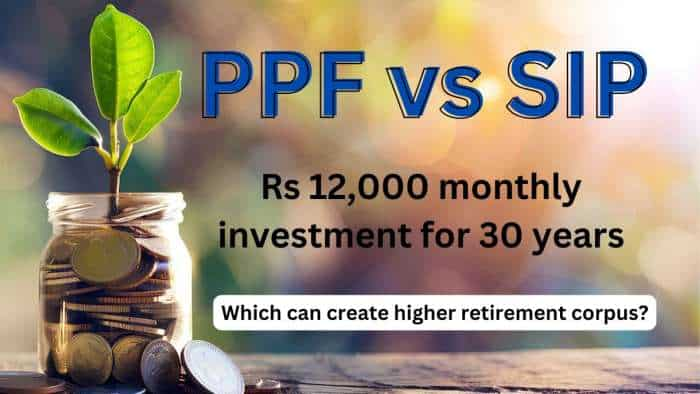Invested in Franklin Templeton mutual funds? Here are all your questions answered by its President Sanjay Sapre
Franklin Templeton on Friday issued an “unconditional apology” to market regulator Securities and Exchange Board of India (Sebi) over its global chief's comments that regulatory tightening contributed to winding up of schemes. Franklin Templeton, one of India’s top 10 mutual fund houses, announced last month that it would be winding up six of its debt schemes.

Franklin Templeton on Friday issued an “unconditional apology” to market regulator Securities and Exchange Board of India (Sebi) over its global chief's comments that regulatory tightening contributed to winding up of schemes. Franklin Templeton, one of India’s top 10 mutual fund houses, announced last month that it would be winding up six of its debt schemes. The move has resulted in about Rs 30,000 crore of investor money being locked up. Its president Sanjay Sapre has now written a letter to investors, clearing all their doubts.
Here are the questions he tries to answer in the letter he wrote:
Q. Winding up of the schemes means that my money is lost?
A. This is factually incorrect. We have communicated the reasons and market circumstances that led us to take this extremely difficult decision which was taken purely to protect value for our investors. As the schemes liquidate portfolio holdings subject to market conditions, receive coupon payments and scheduled maturities, the Trustees will start to return monies to investors at the earliest instance in compliance with regulation 41(2)(b) of SEBI (Mutual Fund) Regulations 1996.
Q. The schemes invested in risky, unrated papers?
A. The schemes followed a consistent investment strategy of investing in investment grade papers across the credit rating spectrum, that is to say, from AAA through to A rated papers. This strategy served the schemes and its investors well till recent times. The schemes were able to generate significant cash flows even during the last 6 months which were more turbulent times for the credit markets. For example, the schemes were able to generate significant cash from the portfolio holdings, a majority of that from papers rated AA and below.
WATCH Zee Business TV LIVE Streaming Online
Q. The liquidity problem is not related to the Covid-19 pandemic
A. These schemes followed a consistent strategy of investing across the credit rating spectrum and have done so for many years, and across multiple market cycles. The schemes have been able to manage through these cycles and provide daily liquidity. Many of these schemes have been in existence for more than 10 years with a similar strategy. The current Covid-19 pandemic created a severe market dislocation particularly for the types of investments that these schemes hold, though the issue of lack of risk appetite, reduced volumes and illiquidity for corporate bonds was a broader market issue. The inability of the schemes to meet daily redemptions was a direct result of the market situation created by the COVID- 19 pandemic as well as the extended lock-down.
Q. The schemes will not be able to return investor monies for an extended period of time?
A. Each /scheme has its own maturity profile and in general, shorter duration schemes will be able to return monies to investors faster. The schemes will receive regular coupon payments and maturities. In addition, the schemes will explore all opportunities to monetize the underlying assets in the portfolio, without resorting to any distress sales, such that it can return investor monies at the earliest possible time. It will be the endeavor of the schemes to return these monies well in advance of the maturity dates of the underlying securities.
Q. We should be redeeming our monies from all other Franklin Templeton schemes as these could also be wound up?
A. The decision to wind up our suite of six yield-oriented schemes was an extremely difficult one and taken only to protect investor interest. It was not a situation in which we hoped to find ourselves. We also recognize this has impacted liquidity for our investors but was necessary in order to preserve value for our unitholders.
Our other fixed income schemes which are open for subscription and redemption, primarily invest in highly liquid securities such as Government Securities, AAA rated bonds or other cash and cash equivalents. These portfolios have the necessary ability to generate liquidity in order to meet redemptions. We have already generated a significant amount of liquidity in these portfolios to meet any redemption requests we may receive.
Our equity schemes remain unaffected and continue to be managed by our experienced and tenured team based in Chennai in line with their investment mandate and fund management philosophy.
Get Latest Business News, Stock Market Updates and Videos; Check your tax outgo through Income Tax Calculator and save money through our Personal Finance coverage. Check Business Breaking News Live on Zee Business Twitter and Facebook. Subscribe on YouTube.
RECOMMENDED STORIES

PPF vs SIP: Rs 12,000 monthly investment for 30 years; see which can create higher retirement corpus

Power of Rs 15,000 SIP: How long it will take to achieve Rs 7 crore corpus? See calculations to know

Top 7 Index Mutual Funds With Best SIP Returns in 10 Years: Rs 11,111 monthly SIP investment in No. 1 fund is now worth Rs 33,18,831; know how others have fared

Largecap PSU Stock for 65% Gain in New Year: Anil Singhvi picks PSU bank for long term; know reasons and target prices
03:38 PM IST








 Franklin Templeton case: ED searches underway in Mumbai, Chennai as part of money laundering probe
Franklin Templeton case: ED searches underway in Mumbai, Chennai as part of money laundering probe SEBI amends norms: Market regulator brings in buying & selling of mutual funds under insider trading rules
SEBI amends norms: Market regulator brings in buying & selling of mutual funds under insider trading rules Franklin Templeton Mutual Funds unitholders to get Rs 1,115 cr in 7th tranche
Franklin Templeton Mutual Funds unitholders to get Rs 1,115 cr in 7th tranche Mutual Funds: Franklin Templeton's shut schemes now have Rs 1,981 cr cash for distribution
Mutual Funds: Franklin Templeton's shut schemes now have Rs 1,981 cr cash for distribution Franklin Templeton debt schemes mutual funds: What Supreme Court said - latest development
Franklin Templeton debt schemes mutual funds: What Supreme Court said - latest development